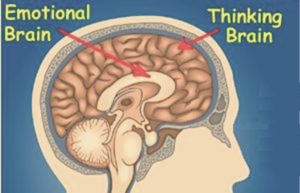Trauma Therapy
Are you looking for effective trauma therapy with a compassionate therapist dedicated to you?
At Morningsong Therapy Center in Minneapolis we offer high-quality therapy for those looking to overcome the trauma they’re struggling with. We use modern, evidence-based techniques to create meaningful, lasting change in our client’s lives.
Many of our therapists have specialized training in methodologies and a proven track record of success. In therapy, we help clients build up resilience, gain new coping skills, and learn to trust those around them. The focus is on making real, practical, and lasting changes so that you can achieve a joyful life.
Therapy for Trauma
You will start therapy with a thorough assessment so that your therapist can get a real understanding of your situation, and symptoms. This will allow her to select the most appropriate course of therapy so you can start making progress on your journey to healing.
Your therapist will design an integrated treatment plan, supporting you step by step through the process. Our therapists are trained in many evidence-based therapies for trauma and your treatment plan will be fully customized to your needs.
Treatment Options
Therapeutic techniques used for trauma at Morningsong Therapy center include:
Eye Movement Desensitization and Reprocessing (EMDR)
EMDR is based on the understanding that traumatic experiences overwhelm the brain’s ordinary coping mechanisms, preventing memories from being processed normally. This produces feedback that manifests itself as PTSD.
In EMDR, your therapist guides you in using your rapid, rhythmic eye movements as a tool to dampen the feelings of anxiety and fear that accompany traumatic memories.
Brainspotting: Where you look affects how you feel

Have you ever heard yourself say, “I know I shouldn’t feel this way, but I can’t help it!” So often, what we know and how we feel are in conflict. We try to think our way out of our problems when it’s the feeling that keeps us stuck. If you can relate, brainspotting might be for you!
What is brainspotting (BSP)? It is a non-traditional form of therapy that is rooted in mindfulness and neuroscience. So what exactly happens with BSP? First, let’s talk about the brain.
The neocortex is the top layer of the brain. This is also called the “thinking brain.” Here, we create meaning, organize our thoughts, and solve problems. Traditional talk therapy generally takes place in this region of the brain.
The subcortex is the middle part of the brain. This is also called the “emotional brain.” Here is where our feelings, emotions, experiences, and memories are processed. When an experience is too overwhelming — such as big emotional stress or trauma- we are unable to fully process it. When these powerful emotional states have nowhere to go, they can remain trapped in the subcortex and act as an invisible barrier to our mental health.
This is when BSP can be effective. It gives the neocortex (the thinking brain) a rest and lets the subcortex (the emotional brain) go to work. Instead of just talking about what happened, BSP invites you to focus on how it felt. The subcortex is accessed through eye positions, and with the support and attunement of a BSP therapist, you are able to unlock and expand the brain’s capacity to process and eventually release the stress and trauma that has been holding you back. BSP is known as a way to reboot or update the brain — sweeping out the old data and making room for the new and harness each person’s intrinsic resilience and restorative capacities.
If you are interested in learning more, please reach out to one of our BSP therapists:
Also check out the official Brainspotting page at: https://brainspotting.com/ for the latest news and research.
Internal Family Systems Model (IFS)
IFS was developed by Dr. Richard Schwartz as a way of treating clients who had been through severe trauma. This form of therapy is based on reintegrating the different elements of your personality that may have been disarranged as a result of trauma.
IFS works by promoting connection and harmony within your mind so that they each play a healthy role in supporting you as a well-balanced person.
Prolonged exposure therapy (PE)
Prolonged exposure therapy is the most commonly used form of therapy for trauma. In PE, you progressively build a healthier response to trauma by directly confronting your traumatic memories in a structured, gradual way. As therapy progresses, you develop the ability to cope with painful memories. This will also help you avoid the need to resort to unhealthy coping mechanisms.
Trauma therapy and attachment in Minneapolis
At Morningsong Therapy Center, we are experienced in helping people who have endured disrupted attachments as children. We provide counseling for attachment issues to a diverse range of clients, including children, adolescents, and adults.
Our therapists are able to help build resilience and healing for these individuals and their families.